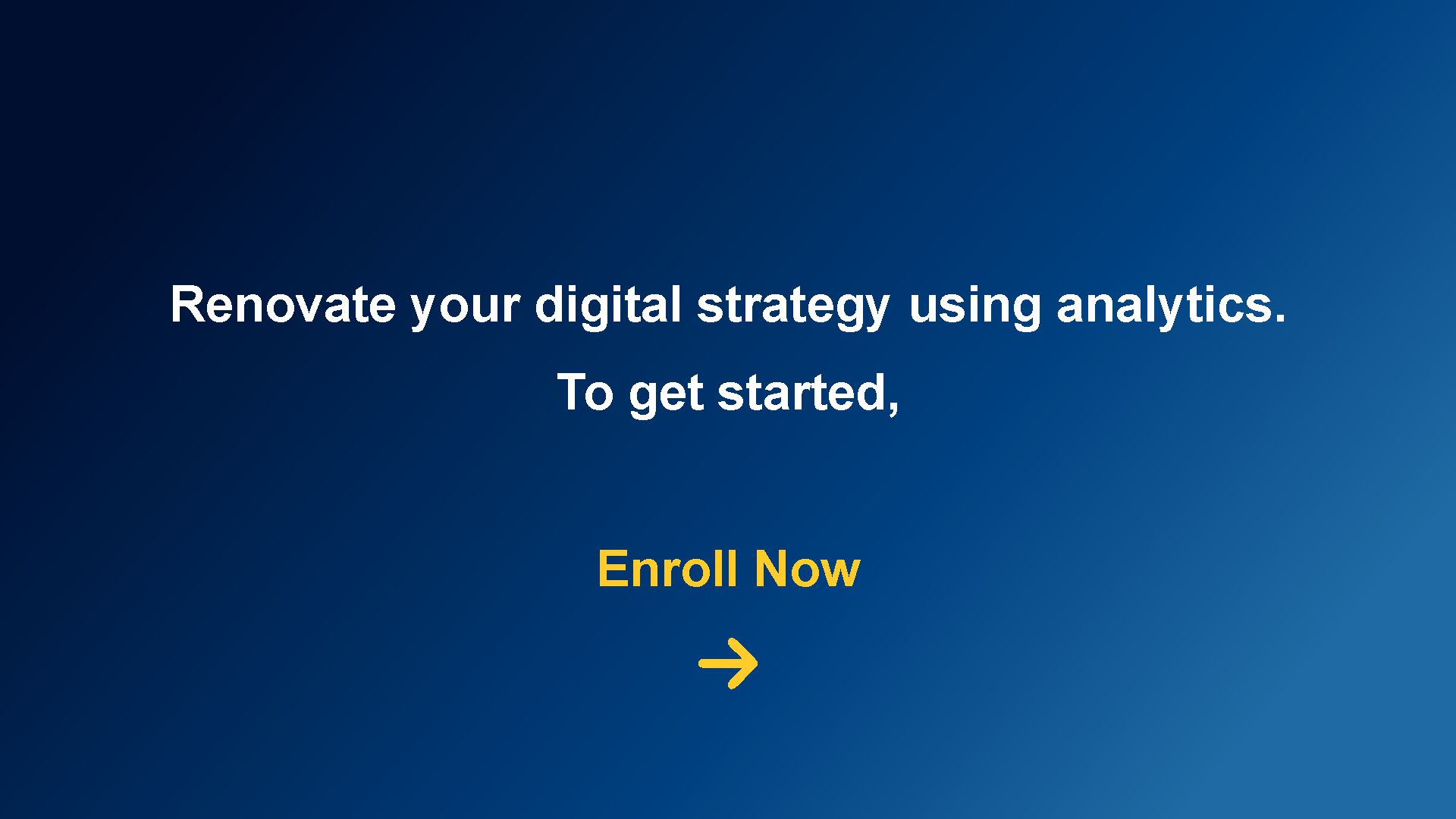Excerpt: Appointing a specialized staff within your firm to do so is a recommended practice to obtain the best outcomes and avoid misunderstanding or mismanagement. There is an increased likelihood of success if the employee team is educated by a Digital Marketing and Analytics Course.
Whether your company is in the digital products sector, E-Commerce, or any business that requires a dependable online presence, digitization is an unavoidable requirement. In the context of marketing, digital analytics consists of techniques that are used to evaluate and report on marketing data obtained via the digital platforms where your company is active.
As per Forbes, 44 percent of firms have switched to a digital-first strategy to offer customer satisfaction in 2019, with 76 percent of customers believing that businesses must identify their requirements and expectations before engaging in a conversation or buying a product. Digital analytics enables businesses to develop a better digital marketing strategy for their clients and potential consumers, resulting in the attainment of targeted objectives over time. Here is what a perfect digital analytic strategy looks like:
Landing pages that can handle an influx of visitors
One of the most common problems in effective digital marketing efforts is that the page that an advertisement directs consumers to becomes overburdened with new visitors, causing the webserver to become overwhelmed. The effect can be as catastrophic as a website collapsing due to a significant influx of new visitors. The easiest method to avoid a situation where your web host is overwhelmed by the number of visitors to the website is to utilize a well-planned precautionary strategy.
Multi-way data integration
One of the cornerstones of digitization is providing significant, innovative, and relevant digital content to company clients and consumers. Multi-channel analytics combines data from several sources and performs conversion attribution on the resulting data. It’s critical to tie the digital marketing strategy themes to the business model. As a marketer, one may use multi-channel analytics to combine relevant content and data from numerous routes and resources to assess the performance of prospects who transform into customers.
Correct digital analytics tools
Today, businesses’ reliance on analytics tools is skyrocketing, so there are hundreds of options to select from. The key is to choose solutions that are appropriate for your company’s Data Analytics needs, finance, ease of implementation, maintenance, and intelligent systems such as social analytics, real-time data, and multi-channel actionable insights. If you’ve chosen the correct tools, you’ve already addressed half of the Digital Analytics problem. Make a list of the benefits and drawbacks of your existing data gathering, processing, and customer services, as well as the performance of your online platform. Consider the best approaches to decrease downtime and the extent to which businesses can go with coworker training with Digital Marketing and Analytics Course to increase effectiveness.
Assemble a dedicated team
The staff organizations hire to manage their digital marketing strategy is critical to the campaign’s effectiveness. Appointing a specialized staff within your firm to do so is a recommended practice to obtain the best outcomes and avoid misunderstanding or mismanagement. There is an increased likelihood of success if the employee team has taken a Digital Marketing and Analytics Course. Developing a project team charged with writing and implementing a digitalization plan would improve collaboration, mutual understanding, and criticism, resulting in improved digitalization.
Conclusion
The environment of digital analytics is changing at such a quick pace that it has become imperative that digital strategy include practical results and information. Only then could the digital analytics ecosystem be capable of assisting any company in response to new situations, and then will it be adequately prepared for the long term.
To be a specialist in this segment of marketing, enroll for the PG Certificate Programme in Digital Strategy and Marketing Analytics from IIM Nagpur co-powered by Jaro Education and be future-ready in 9 months.
FAQs
- What are digital marketing strategies?
A digital marketing strategy is a series of pre-planned virtual operations aimed at achieving specified corporate objectives. This means taking continuous measures at the right moment using the most appropriate internet channels to boost income and enhance connections with the audiences. There are several beginner and expert level Digital Marketing Strategy courses that help train professionals.
- What is the need for digital analytics?
Digital analytics enables industries to offer an improved user experience to current and potential consumers, resulting in the attainment of targeted objectives over time. Companies employ digital analytics as a technique to gather, measure, and analyze primary and secondary data. For this up-skilling, professionals study various Digital Marketing Analytics Courses online.
- What is the value of digital analytics in marketing?
To define the core demographic, companies need data, and that is why digital analytics is so important. Data can assist professionals in predicting future trends in the industry, allowing them to adjust their approaches to fit the developments and get the most from their digital marketing strategy.
- What skills do you need to become a digital analyst?
A digital analyst should understand the fundamentals of arithmetic and mathematics. To be a digital analyst, the individual must have specialist expertise in Google Analytics, Big Data, Tableau, Power BI, and Excel. At the same time, they must have soft skills and social marketing techniques so that, depending on their research, they can provide concrete measures to an organization.






